Creative Wales is encouraging young people to consider career opportunities in Wales’ creative industries
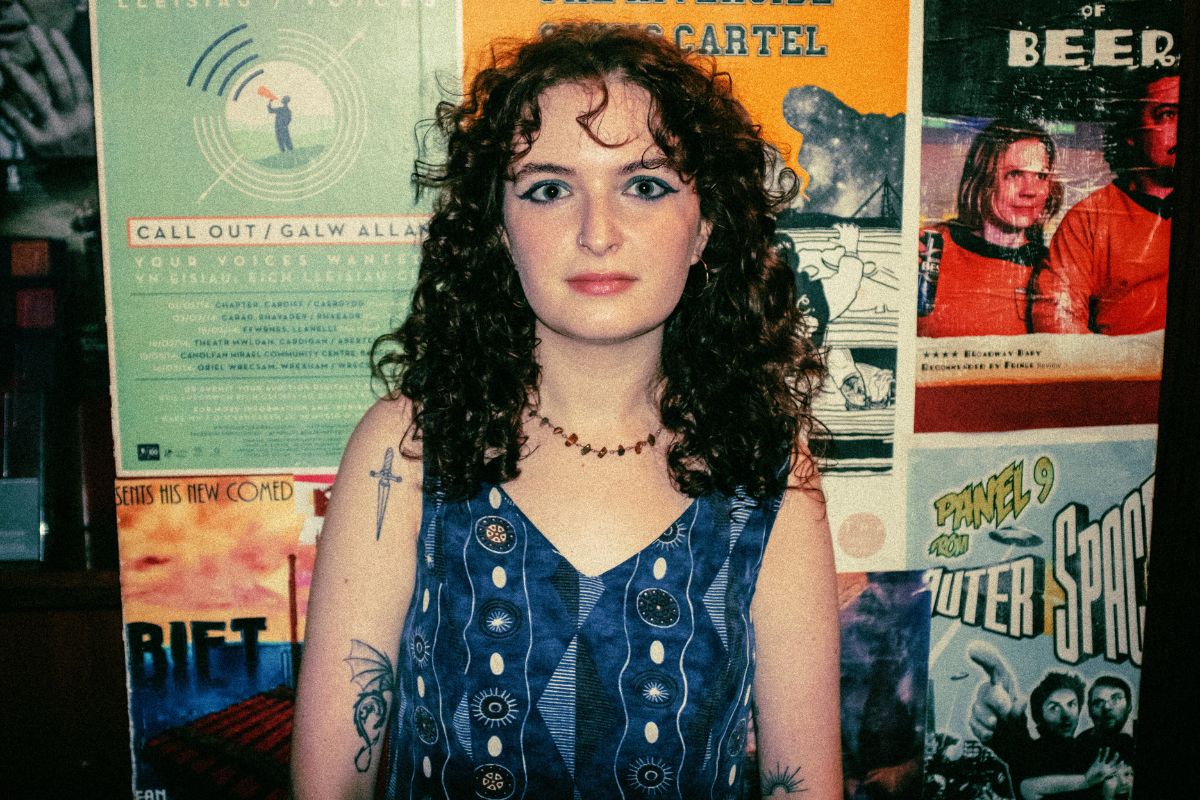
- Creative industries in Wales contribute £187 million to the Welsh economy, turning over £1.4 billion and employing 32,500 people
- Global games companies, leading animation studios and major screen productions choosing to locate in Wales are all helping to create training opportunities and demand for skilled workers
Creative Wales is calling on young people with a particular interest in Games, Animation, Immersive Tech, Film, TV and the local Music scene to explore the entry-level training opportunities available to them in Wales.
The growth of Wales’ creative industries is recognised as one of Wales’ major success stories, with latest figures showing that this sector contributes £187m to the Welsh economy. In 2022 alone, the creative sectors in Wales generated an annual turnover of £1.4 billion and employed some 32,500 people, not including the growing freelance sector.
Wales’ screen industry, which has been home to major global productions such as House of the Dragon, Sex Education and His Dark Materials, continues to contribute the largest amount to Wales’ creative sectors, with a turnover of £459m in 2022. To date, Creative Wales has offered £22.8m to 42 projects via its Production Funding scheme, with an associated Welsh spend of £271.9m and created 381 trainee placements at both entry and professional levels. Interest from UK-based and international production companies continues, with several enquiries currently in the pipeline.
New productions are being green lit all the time, creating new opportunities for people looking to enter the industry. The company behind Keeping Faith/Un Bore Mercher and Dal Y Mellt, the first Welsh language drama ever to be picked up by Netflix – Vox Pictures – has recently announced a new eight-part Welsh language teen thriller series for S4C – HAFIACH. The series is being filmed on location in North Wales over the summer months and provides training opportunities for people living locally.
Alongside Film and TV, the Games sector has also seen recent international success such as the huge popularity of Wales Interactive’s horror zombie game Sker Ritual, and the arrival of flagship American games company, Rocket Science to Cardiff in August last year.
Joedi Langley, Interim Head of Creative Wales said:
“We know that for young people thinking about their next step, the summer months can be a time of uncertainty. We want to encourage young people in Wales to consider the creative industries when they are thinking about their training and careers options.
“We’ve committed to a Creative Skills Action Plan to shape industry growth over the next three years. A key priority within the plan is to provide widespread entry-level opportunities in creative sectors, and to help demystify careers by supporting and platforming initiatives that bridge the gap between talent and industry.
“We are also working hard to provide support and funding to our creative employers, which in turn results in more work and study opportunities in the industry. And we are continuously looking at how we can best address challenges around diversity and inclusion in the industry.
“We are committed to doing all we can to strengthen and support the creative sectors in Wales. It’s great to see that we are once again receiving a significant number of queries from major global companies looking to work in Wales, which will only mean more quality training and job opportunities for people based here.”
Case studies
Fiorella Wyn, aged 35, is a screen hair and makeup trainee for S4C. She took part in a CRIW training opportunity through Sgil Cymru. She said:
“I’ve wanted to work in film since I was a teenager. I loved the special effects in 80s horror movies and initially went to train on a technical arts and special effects course, but when we did the prosthetics unit, I realised that I wanted to go down the makeup route.
“I’m currently a hair and makeup trainee on a teen drama for S4C, where I spend most of my time on set. Through my role I recently took part in a facial hair-making course with renowned wig-maker Amy Kinsey of Kinsey Wig Studio. She inspired me so much that I now want to eventually specialise in wigs.
“There are barriers for young people looking to get a foot in the door in the creative industry. When I was in school, it was very much an attitude of taking the ‘traditional’ route of higher education to lead you on a path to your full-time role. I didn’t know I could study special effects until I attended a UCAS fair when looking for art schools to go to! I wish I knew about apprenticeship schemes like CRIW sooner, but I’m very glad to be a part of this now.”
Jobi Chan, aged 25, is a Trainee Production Assistant who took part in the Creative Wales-funded Rad Cymru traineeship scheme. She said:
“I’ve always had an interest in the screen sector, from studying theatre studies at A level, to completing a degree in film making at Sussex University. I’m the first person in my family to work in the creative industries and it’s an exciting path to be on.
“I really enjoy the organisation element of my role including planning travel, accommodation, scheduling shoots and call sheets. The highlight for me is the organising and working out logistics as I get satisfaction from planning and knowing everything and everyone is taken care of.
“The main barrier for young people is that lots of jobs aren’t advertised the same way as other industries using platforms like LinkedIn and Indeed. In the screen sector, it’s a case of making a name for yourself and enhancing your reputation through key contacts and work you’ve done, but it’s hard to do this when you’re starting out. That’s why it’s so important for schemes like Rad Cymru to exist, as it gives people like me the opportunity to get a foot in the door.”
Ceyda Vale, aged 24, took part in the Beacons Cymru Resonant project offering marginalised genders training opportunities in the music industry. She said:
“One of the biggest things that inspired me into the industry was watching the ‘One More Time with Feeling’ documentary about Nick Cave before I went to university to study film. I’ve always known that I wanted to freelance, and this has led to me working for independent grassroot venues across Wales, as well as giving me the opportunity to work with artists such as Minas, Millie Blumes and even Nick Cave – a full-circle moment in my career!
“I decided to apply to the Resonant project through Beacons Cymru and got in last year, which got me into lighting tech, allowing me to develop through shadowing sound techs in music venues.
“The opportunities I’ve had through this scheme have been lifechanging, they allow you to do a new workshop in a different area of the industry each month; a rare opportunity to delve into and develop interchangeable skills. So many people have been impacted by support from Creative Wales and Beacons schemes, it’s really exciting for the future of the creative industries.
“While qualifications and experience are important, it’s ultimately how you support others within the industry through your skills and personality that helps to establish yourself within a creative sector.”
Owain Llyewellyn, aged 32, also took part in the Rad Cymru traineeship scheme. He now works in post-production as an MCR operator. He said:
“Screen production has always been a big part of my family, my father and grandfather both worked in the industry as a film editor and director, so I’ve always had a part of the industry with me. This inspired me on my journey to becoming a machine room tech operator and helped me forge my own path in the industry.
“I started off as a runner and assistant director in S4C’s Welsh soap, Pobol y Cwm, which was enabled through the TRC Rad Cymru scheme. This helped me to into post-production, which has always been my aim.
“My current role is a MCR Operator which means that I’m responsible for the machine room and technical operations. The role is varied and exciting, and has allowed me to work with BBC, ITV, and S4C productions. In my experience, building a foundation of knowledge from different aspects of screen is important in progressing in a more niche sector.”

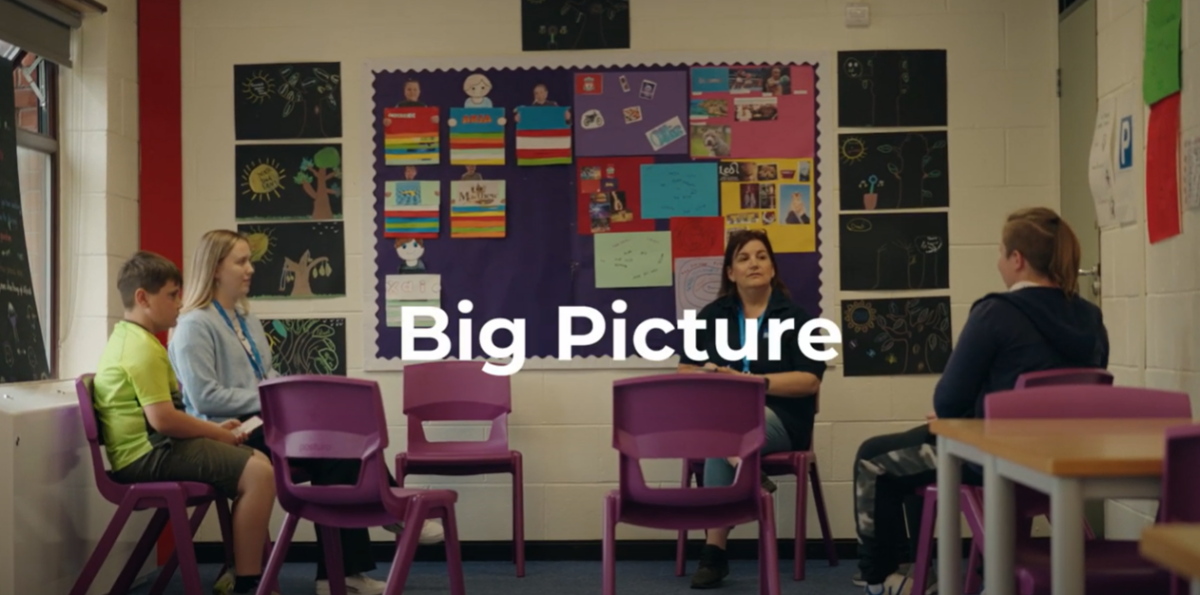



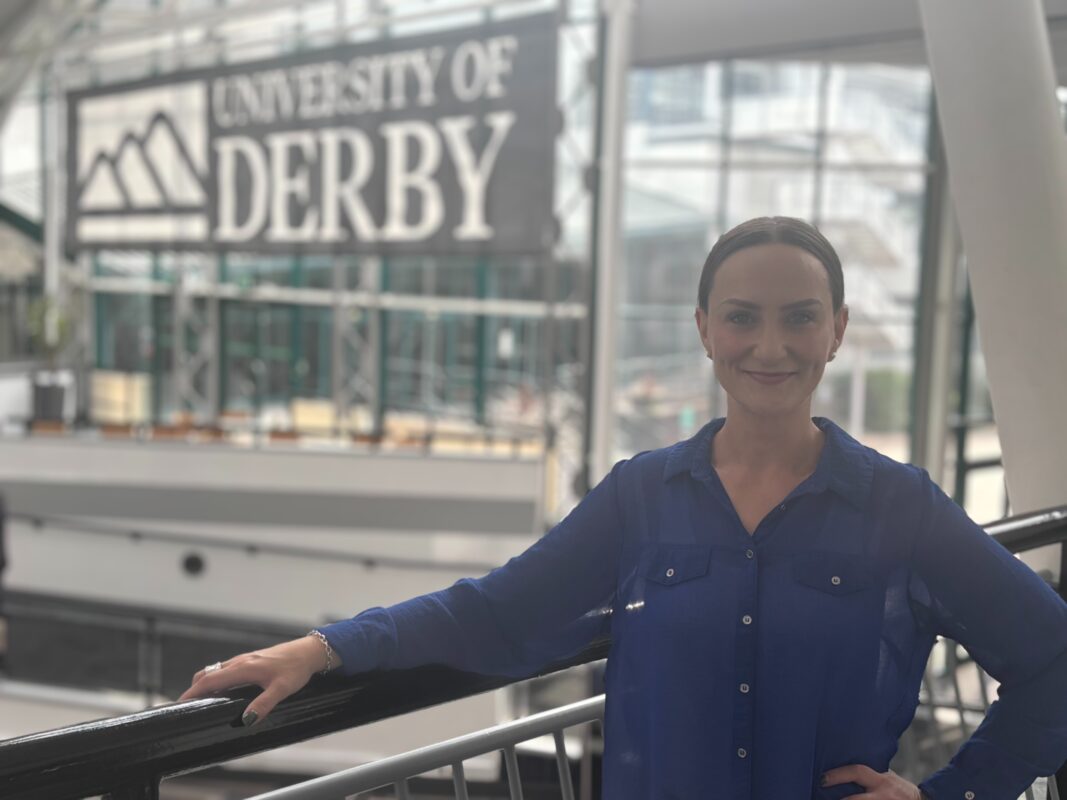
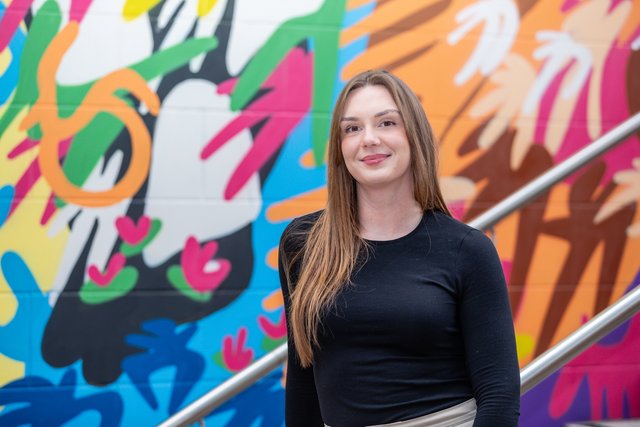
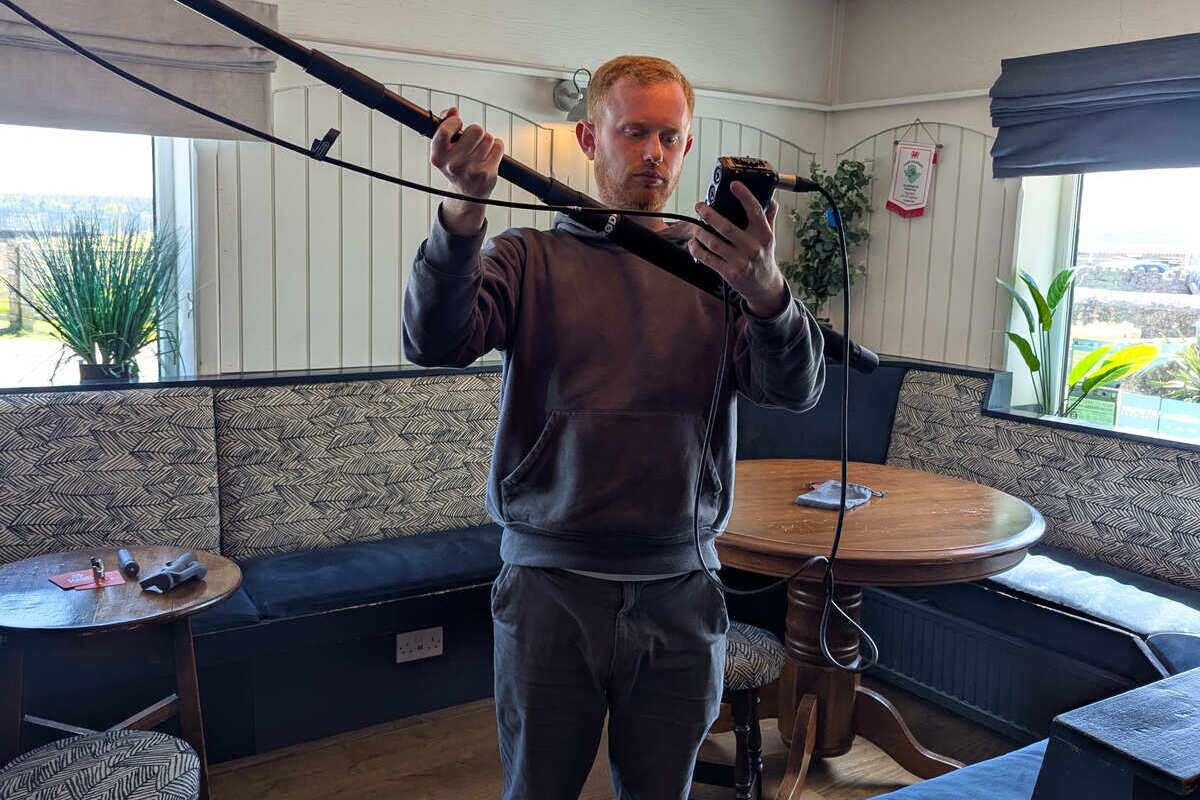



Responses